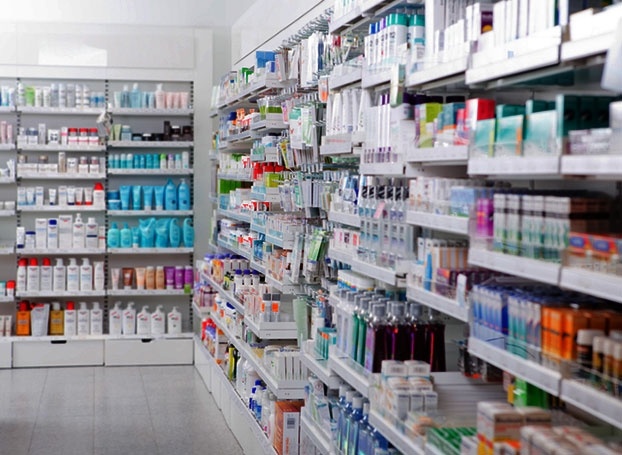…soaring prices slow demand, patients running higher risks
No sector of the economy is spared as long as the local currency continues to weaken, fuel prices rise consistently and transport fares rise – and the pharmaceutical industry, which is driven mainly by imports, is not spared with prices of products on shelves soaring.
A walk through some pharmacies and pharma-tech firms shows that prices of regular medications and over-the-counter drugs have seen at least a GH¢10 increment, with some witnessing as much as 50 percent rise in less than a month and more than 100percent since the beginning of the year.
A pharmacist who operates at Adjiringanor, a suburb of Accra, tells the B&FT that drugs such as Apetamin, Tothema and Coartem which retailed at GH¢25, GH¢60 and GH¢70 only three weeks ago, now sell at GH¢35, GH¢80 and GH¢85 respectively. The BK-1 pill, a contraceptive that sold at GH¢5 last month, is now selling at GH¢10… a 100 percent increment in the space of a month. Some anti-malarials which sold at GH¢120 per pack in December 2021 are now GH¢250.
“One of the most common de-wormer brands, Vermox, was sold at GH¢12 but now sells at GH¢15; and the regular Vitamin C that traded at GH¢2 witnessed a 50 percent rise to GH¢3 per a strip,” indicated the pharmacist, who pleaded anonymity.
Risk to health of customers/patients
According to the pharmacists who spoke to B&FT, the situation puts patients at risk because many individuals who cannot afford the increases opt to buy half their prescriptions due to the high prices, which could pose a health risk because they might not be taking their medications exactly as directed.
“Standard medicines have experienced a hike in their wholesale prices, and it has trickled into retailing. And this is experienced by our clients/patients who are already battling the deepening economic crisis. Some patients are even forced to seek these medicines from unauthorised people, who may issue substandard and illegal drugs in the name of helping them out,” Head of Pharmacy Department at the Tamale University for Development Studies, Hospital, Dr. Samuel Essilfie has said.
Theophilus Nutifafa, Chief Executive Officer of Pharst Care – a health-tech company with a set of doctors that deals directly with customers and several pharmacies in the capital, noted that the rate at which people order medicines has reduced extremely.
“Now when we get orders and after prices are sent, the customers indicate they will get back – and that’s it; they will not, because the prices are too much. Because of the hike in fuel prices, our deliveries which used to be between GH¢3 and GH¢5 are now between GH¢10 and GH¢15. Storage has also become very expensive due to the rise in tariff charges; and if you are renting a shop for the pharmacy, landlords also demand you pay higher,” he said.
Another pharmacist at Adjiringanor also told the B&FT that: “This is affecting sales, especially in the first two weeks when prices change. We lose customers because people usually think we increased it ourselves. They leave upon getting to know the new prices, until they visit other places and realise it is the same. You will run at a loss if you do not keep in touch with the suppliers to know when prices change”.
For his part, Dr. Samuel Essilfie noted that at their end the sale of over-the-counter medicines has been drastically affected, but the prescribed medicines are purchased because they encourage clients to value their health above the economic hardship.
“Our negligent approach to some drug classes like antibiotics has led to issues of antibiotic resistance, which has forced many prescribers to change recommendations from prescribing first-line drugs (which are common and cheap) to second-line and upward of them, and are comparatively more expensive. For example, someone who does not respond to an antibiotic like amoxicillin for chest infection will have to be given, say, clarithromycin with other medicines for this resistance which is high in value,” he added.










